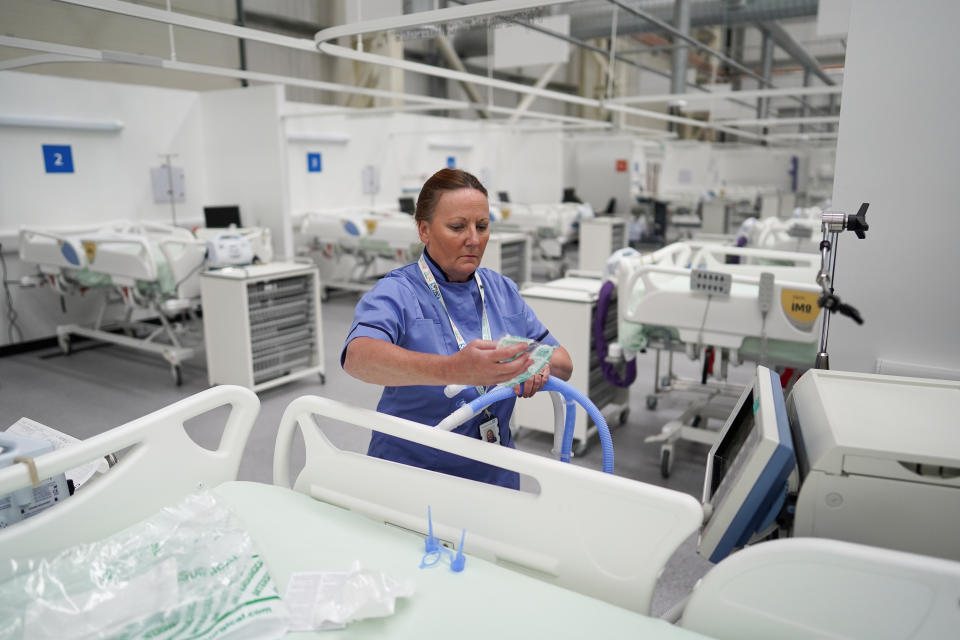Number of COVID patients on ventilators has nearly doubled in eight days

COVID patients relying on ventilators to breathe nearly doubles in eight days
Hospitalisations have also quickly increased
Follows a surge in new infections in September
The number of coronavirus patients who have been put on ventilators has doubled in the past eight days.
The most recent government data shows 228 patients were on ventilators on Wednesday (23 September), up from 115 on 15 September.
While nearly 7,000 new COVID-19 infections were recorded on Friday – and a separate Office for National Statistics survey suggested daily cases could be as high as 9,600 – the increase in those requiring hospital treatment is a more accurate indicator of the seriousness of the situation at this time.
The number of COVID patients being admitted to hospital has also been quickly increasing this month.
On Wednesday, there were 1,616 coronavirus patients in UK hospitals, compared to 723 on 11 September, less than a fortnight before.

Hospital admission figures, and the amount of people relying on ventilators to breathe, are updated daily, but with up to a week’s delay. The most recent figures available on Friday applied to Wednesday.
The number of confirmed daily infections has been reported as being higher than at any point during the pandemic, but less testing was taking place at the start of the crisis – Matt Hancock has suggested up to 100,000 people could have been infected every day during April.
Meanwhile, the reproduction “R” rate – the rate of infection from person to person – was today revealed to be as high as 1.5 in parts of the UK, but this data can also have a time lag of several weeks, meaning the actual R could be even higher.
Prof Kevin McConway, emeritus professor of applied statistics at The Open University, warned the situation could be more severe than suggested by today’s figures. He said: “It's not surprising, given other data, that the ranges are higher this week than last.
Watch: Can the coronavirus affect the brain?
“That may not, however, represent a true increase in the R number or the growth rate between last week and this.
“These estimates are based on several different sources of data. For some of those sources – particularly numbers of hospital admissions, ICU [intensive care unit] admissions, and deaths – the patterns of increase or decrease are delayed compared to changes in new infections, because it takes time after someone has been infected before they may need hospital treatment or, sadly, die from their infection.
“So the current R and growth rate estimates will not have fully taken changes in those figures into account.”
The increasing number of hospital admissions has threatened to put a strain on the NHS, with frontline staff telling Yahoo News UK on Friday they are “freaking out” at the prospect of a second wave of COVID hospital admissions.
Boris Johnson has urged Britons to follow the government’s new coronavirus restrictions in order to avoid a full second lockdown and protect the NHS.
He said on Tuesday: “If we let this virus get out of control now, it would mean that our NHS had no space – once again – to deal with cancer patients and millions of other non-covid medical needs.”
However, the prime minister attempted to reassure the nation that a structure was in place to cope with the increasing demand for hospital admissions.

He said: “We have the PPE [personal protective equipment], we have the beds, we have the Nightingales [temporary hospitals], we have new medicines – pioneered in this country – that can help save lives.
“But now is the time for us all to summon the discipline, and the resolve, and the spirit of togetherness that will carry us through.”
Coronavirus: what happened today
Click here to sign up to the latest news, advice and information with our daily Catch-up newsletter


